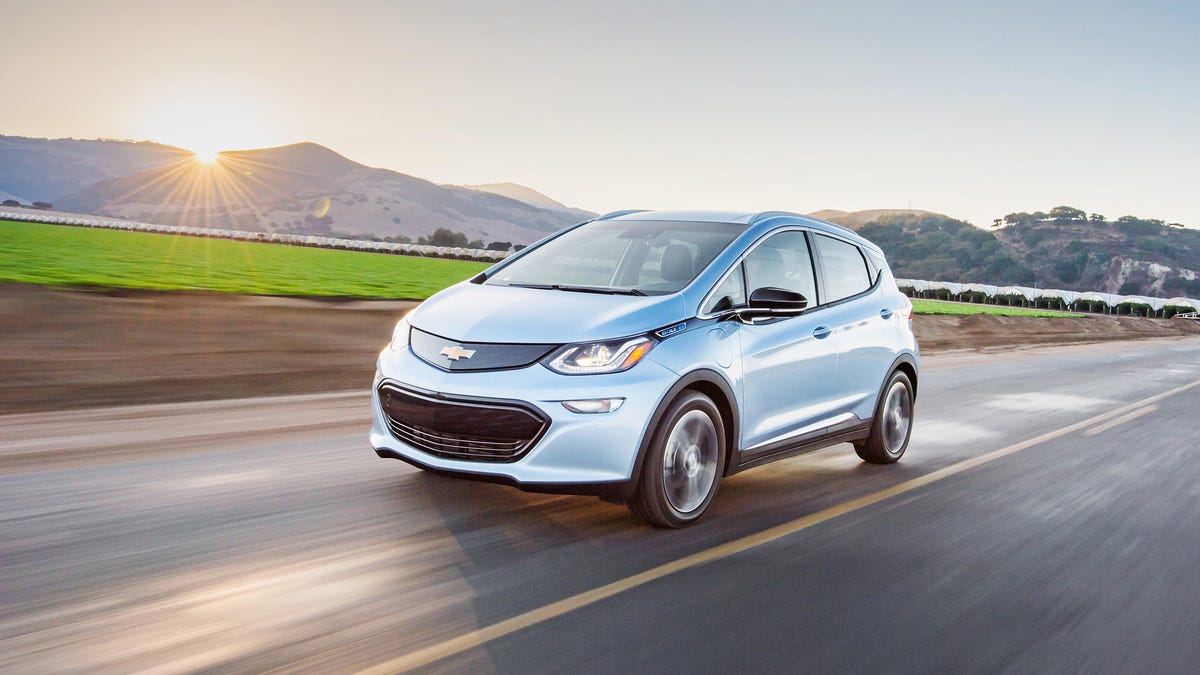GM proposes new, nationwide zero-emissions vehicle standard
The goal: 7 million "long-range" electric cars on the roads by 2030.

General Motors is proposing that the US adopt a single nationwide standard for the adoption of zero-emissions cars. In a press release today, GM said it would comment on the proposed Safer Affordable Fuel-Efficient (SAFE) Vehicles rule with a call for a National Zero Emissions Vehicle (NZEV) program that would cover all 50 states.
GM's proposed rules would prevent 375 million tons of carbon-dioxide emissions from 2021 to 2030, the company says.
GM's proposed NZEV program would require automakers to sell seven percent zero-emissions vehicles by 2021, with that level increasing by two percentage points each year to 15 percent by 2025. Then by 2030, that figure would need to jump to 25 percent. The system for measuring the percentage of ZEVs sold would be based on "credits" that would relate to an electric car's range; automakers would also be able to use "averaging, banking and trading" to meet the criteria.
GM says that the rules, if fully adopted, could put 7 million "long-range" electric cars on American roads by 2030, saving 375 million tons of carbon-dioxide emissions from 2021 to 2030.
Currently, California has a so-called ZEV mandate that requires automakers sell a certain percentage of zero-emissions (generally electric) vehicles within the state. Several other states follow those rules, too. The federal government, however, has proposed rolling back California's power to set its own rules with the California Air Resources Board (CARB).
The proposed rules also aim to reduce the cost of battery packs for electric cars.
However, GM says that having one national rule would not only accelerate the introduction of more electric cars, but also would reduce uncertainty for automakers as they develop future models. Building one set of vehicles for ZEV states and different ones for other states would be, "very costly, and frankly unnecessary," Mark Reuss, GM's executive vice president of global product development, told Bloomberg.
"I believe it [the rule] will facilitate more makers to be able to really focus on development of electric vehicles more efficiently and take the guesswork out of what we think may or not happen," he said.
Other tenets of GM's proposed policy encourage automakers to work toward "commercially viable" pricing for electric-car batteries, targeting a cost of $70 per kilowatt-hour of capacity. (For reference, the Union of Concerned Scientists estimates that the battery in the Chevrolet Bolt EV costs about $205 per kWh.) Automakers could also receive "additional consideration" for launching electric cars in autonomous ride-sharing programs. GM stands to benefit, for instance, as it is working on a self-driving ride-share vehicle co-developed with Honda .
For now, GM's proposal is just that: a proposal. The federal government is accepting comments on the SAFE Vehicles rule, which aims to roll-back Obama-era plans to ramp up fuel-economy requirements for new cars in the coming years. GM's proposal is likely only to continue the feud over this rule; California and 17 other states have already sued the Environmental Protection Agency over the new rules.

